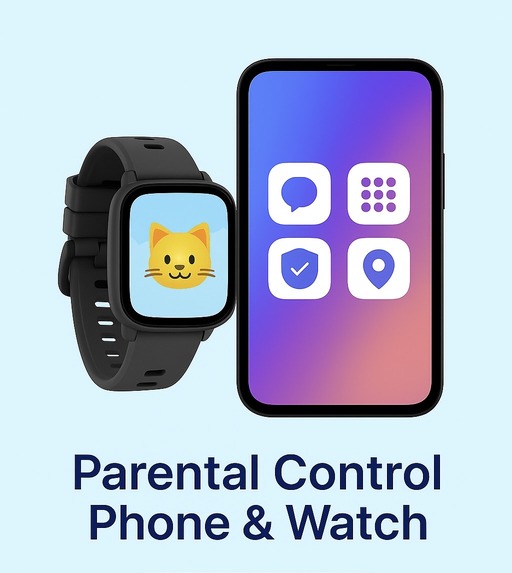
✔ Detects cyberbullying, predators, & threats
✔ Tracks real-time GPS location
✔ Sends instant alerts for risky activity
✔ Blocks explicit, violent, or unsafe websites
✔ Sets screen-time limits and bedtime schedules
✔ Lets parents approve contacts & apps
✔ Keeps data private & secure
10 Screen-Time Mistakes Parents Make When Giving Kids Their First Phone (And How to Fix Them)
Mistake 1: Giving a Fully-Featured Smartphone Too Early
When a child receives a full adult‑level smartphone with unrestricted app access and no oversight, the potential for misuse skyrockets.
Fix: Choose an age‑appropriate phone with built‑in controls, limited apps, and daily time limits.
Mistake 2: Not Setting Clear Rules from Day One
Handing over a phone without any discussion about boundaries invites future arguments.
Fix: Before giving the phone, sit down together. Set rules about when, where, and how the phone can be used—and write them down.
Mistake 3: Using the Phone as a Reward or Punishment
Treating the phone like a prize gives it too much emotional power.
Fix: Establish that the phone is a communication tool—not a reward. Create consistent expectations based on trust, not just behavior.
Mistake 4: Letting the Phone Go Everywhere
When the phone becomes a constant companion—even during meals, in bed, or at family events—it starts replacing real connection.
Fix: Create device-free zones and times like dinner, bedtime, and during schoolwork.
Mistake 5: Ignoring Your Own Phone Habits
Kids copy what they see. If you’re always scrolling, they will be too.
Fix: Model balance. Put your own phone down during key moments—meals, car rides, bedtime—and talk openly about screen habits.
Mistake 6: Waiting to Set Up Parental Controls
Too many parents only activate controls after a problem arises.
Fix: Set up restrictions, time limits, and app approvals before handing over the device. Review weekly together—not as surveillance, but shared responsibility.
Mistake 7: Not Monitoring What They Actually Do
It’s not just how long they’re on the phone—but what they’re doing.
Fix: Check weekly activity. Encourage creative and educational use, not just passive games or endless videos.
Mistake 8: Letting Peer Pressure Decide Readiness
Just because “everyone else has one” doesn’t mean your child is ready.
Fix: Make decisions based on maturity, not age. Explain to your child why your rules may be different.
Mistake 9: Never Reviewing the Rules
Tech use changes fast—and kids grow quickly. What worked last year might not work now.
Fix: Hold monthly check-ins about phone use. Adjust privileges and responsibilities based on behavior and development.
Mistake 10: Overlooking the Emotional Impact
Phones aren’t neutral—they can cause anxiety, FOMO, or dependency.
Fix: Ask your child, “How does your phone make you feel?” Talk about emotions, not just rules.
You don’t need to be a tech expert to be a confident digital parent.
Avoiding these common mistakes—and correcting them early—can lead to calmer routines, fewer arguments, and a more connected family life.